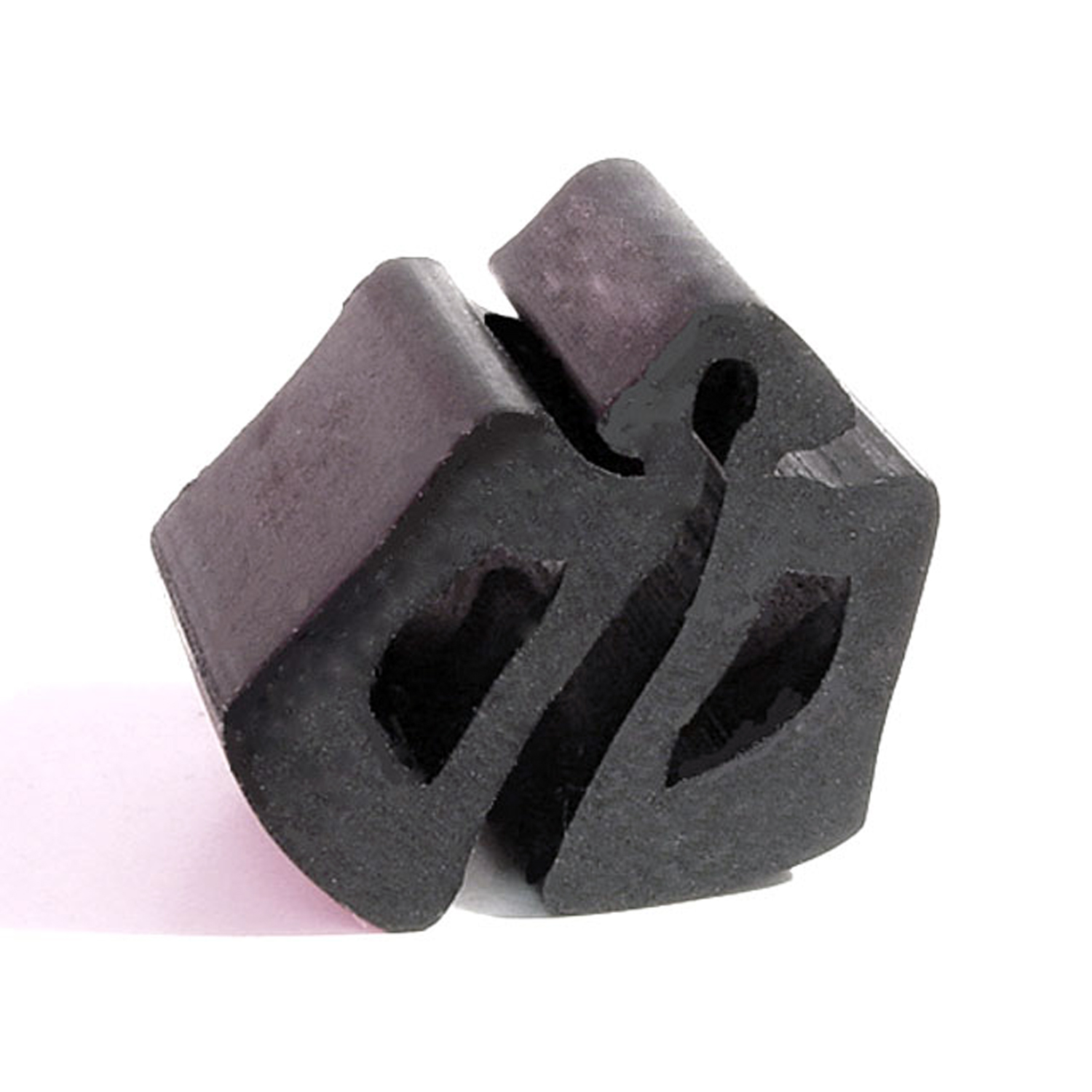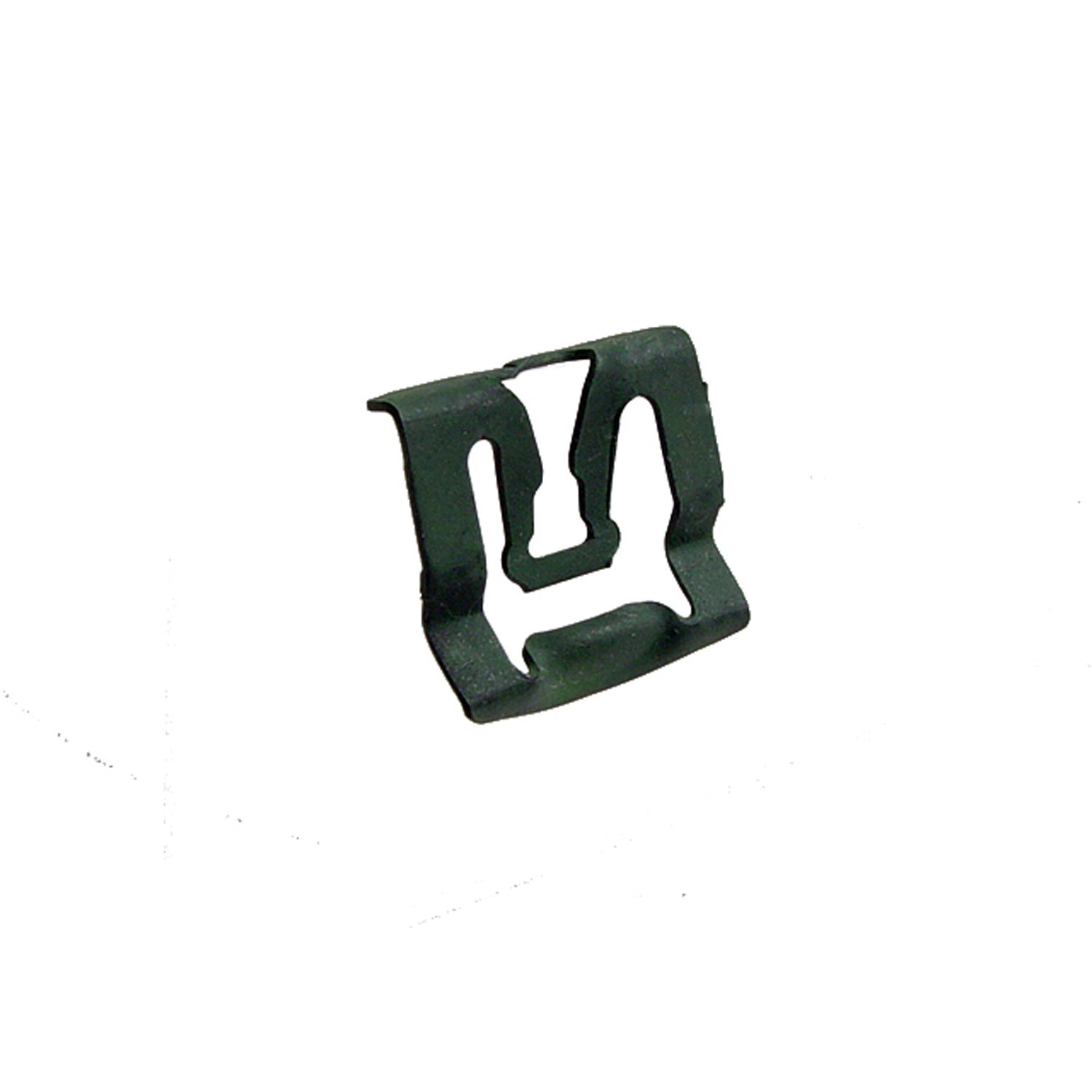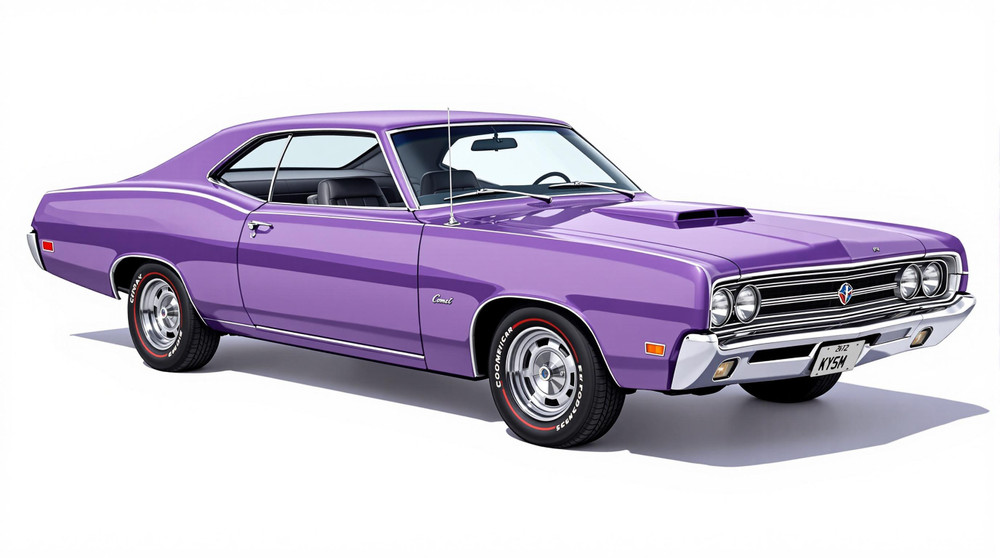Image of 1972 Mercury Comet, Note: These illustrations use artistic license and may differ from actual historical models.
Performance Metrics
Fundamental Metrics
Emotional Appeal
MMP Rating
| Engine Specifications | |
|---|---|
| Engine: | 250 CID I6, 302 CID V8 |
| Displacement: | 250-302 cubic inches |
| Horsepower: | 98-140 hp |
| Torque: | 185-240 lb-ft |
| Compression Ratio: | 8.0:1 - 9.0:1 |
| Ignition System: | Conventional breaker-point ignition system |
| Cooling System: | Liquid-cooled |
| Performance Specifications | |
| 0-60 Time: | Estimated 10-12 seconds |
| 1/4 Mile Time: | Estimated 17-19 seconds |
| Top Speed: | 105-110 mph |
| Transmission and Drive | |
| Drive Type: | Rear-wheel drive |
| Transmission Type: | 3-speed manual, 3-speed automatic |
| Fuel and Efficiency | |
| Fuel System Type: | Carburetor |
| MPG: | Estimated 13-16 mpg |
| Dimensions and Brakes | |
| Brakes: | Front disc and rear drum brakes |
| Wheelbase: | 109.9 inches |
| Weight: | 2,800-3,100 lbs |
Note: Specifications for classic cars are given to the best of our ability, considering the limited and variant data available.
1972 Mercury Comet: A Testament to American Ingenuity
The 1972 Mercury Comet emerges from the pages of automotive history as a symbol of American resilience and adaptability. Born from the stables of the Mercury division of the Ford Motor Company, this compact car was a response to the changing tides of consumer demand during an era marked by an oil crisis and a shifting economy. As a unique fact, the Comet was initially developed as an Edsel model before Edsel's demise, making its survival and success a notable triumph.
Design and Innovation: A Blend of Style and Functionality
The exterior styling of the 1972 Mercury Comet boasted clean lines and a classic long hood, short deck proportion that exuded understated elegance. The interior was a testament to practicality without sacrificing comfort, featuring durable materials that have stood the test of time. Technologically, it offered advancements such as improved suspension for a smoother ride compared to earlier models. Color options ranged from the vibrant 'Grabber Blue' to more subdued hues like 'Ivy Bronze Metallic,' with popular choices often reflecting the spirited personality of its owners. The Comet was available in various body styles, including two-door and four-door sedans, but it was the GT package on the two-door models that captured enthusiasts' hearts with its sporty appeal.
Historical Significance: More Than Just Another Compact Car
The 1972 Mercury Comet made its mark by offering a blend of economy and performance at a time when America needed it most. It stood apart with its upscale sibling status to the Ford Maverick and its ability to cater to a market segment that desired both efficiency and a touch of luxury. Its legacy is evident in how it paved the way for future compact models that didn't compromise on style.
Performance and Handling: A Balanced Driving Experience
Underneath its hood, the 1972 Mercury Comet offered several powertrain options, with performance varying accordingly. While not a muscle car in the strictest sense, select V8 models could achieve respectable acceleration figures, pushing from 0-60 mph in under 10 seconds—a commendable feat for its class. The handling was characterized by predictable responses, capable of managing everyday driving scenarios with ease. Drivers often recall the distinctive purr of the engine and how the Comet provided a comfortable yet engaging ride.
Ownership Experience: Versatility on Wheels
The Comet served many roles—from reliable daily transportation to weekend show car—and even found its way onto local drag strips. Its maintenance profile was generally straightforward, endearing it to owners who appreciated simplicity in upkeep. While not immune to age-related issues, parts availability has remained relatively good due to shared components with other Ford models.
Fun Facts: The Comet's Unique Trail Through History
A lesser-known fact is that some Comets were equipped with performance packages that are now highly sought after by collectors. Although not known for breaking speed records, it held its own in sales figures during its production years. Criticisms typically revolved around its conservative design approach during an era known for bolder automotive statements.
Collector's Information: A Gem in Classic Car Circles
Today's collector market sees the 1972 Mercury Comet as an affordable entry into classic car ownership, with values ranging widely based on condition and originality—typically between $5,000 for a project car up to $20,000 or more for pristine examples. Production numbers were substantial, but exact figures are elusive due to shared VIN codes with other models. Nevertheless, well-preserved Comets are becoming rarer, potentially leading to an uptick in their collectible status and value.
Conclusion: The Enduring Appeal of the 1972 Mercury Comet
The 1972 Mercury Comet stands as an emblematic figure from an era where adaptability was key to survival in the automotive industry. It may not have been the flashiest or fastest on the block, but it carved out its niche and left an indelible mark on automotive history. For those who appreciate simplicity coupled with classic American styling, the Comet continues to shine brightly in the night sky of vintage automobiles.
1972 Mercury Comet Catalog of Parts
 1972 Mercury Comet Hood Bumper. Each-HF 2Hood Bumper. Each
1972 Mercury Comet Hood Bumper. Each-HF 2Hood Bumper. Each 1972 Mercury Comet Windshield Reveal Molding Clip. Made of steel. Each-WF 228-AWindshield Reveal Molding Clip. Made of steel. Each
1972 Mercury Comet Windshield Reveal Molding Clip. Made of steel. Each-WF 228-AWindshield Reveal Molding Clip. Made of steel. EachWhy Choose Metro?
For over 100 years, Metro Moulded Parts has been the pinnacle of quality in classic car restoration parts. Our commitment to precision and authenticity in every component ensures a perfect fit and an OEM-level appearance.
- Expert Craftsmanship & Quality: Each part is a testament to our dedication to reliability and perfection, crafted from original designs and thoroughly tested.
- Advanced Technology: We use cutting-edge techniques to create flawless, long-lasting parts that surpass others in performance.
- SuperSoft Sponge – The Ultimate Door Seal: Not only are our door seals 30% softer than competitors', but they're also guaranteed to never leak. They effectively reduce wind and road noise, enhancing your classic car's comfort and driving experience.
- Proudly American: Our parts are a product of American craftsmanship, made in the USA with a spirit of excellence and heritage.
- Unrivaled Warranty: We back our products with a 30-year industry-leading warranty, a testament to our confidence in their quality.
Join us in preserving the legacy of classic cars with parts that are crafted for perfection, not just made.

